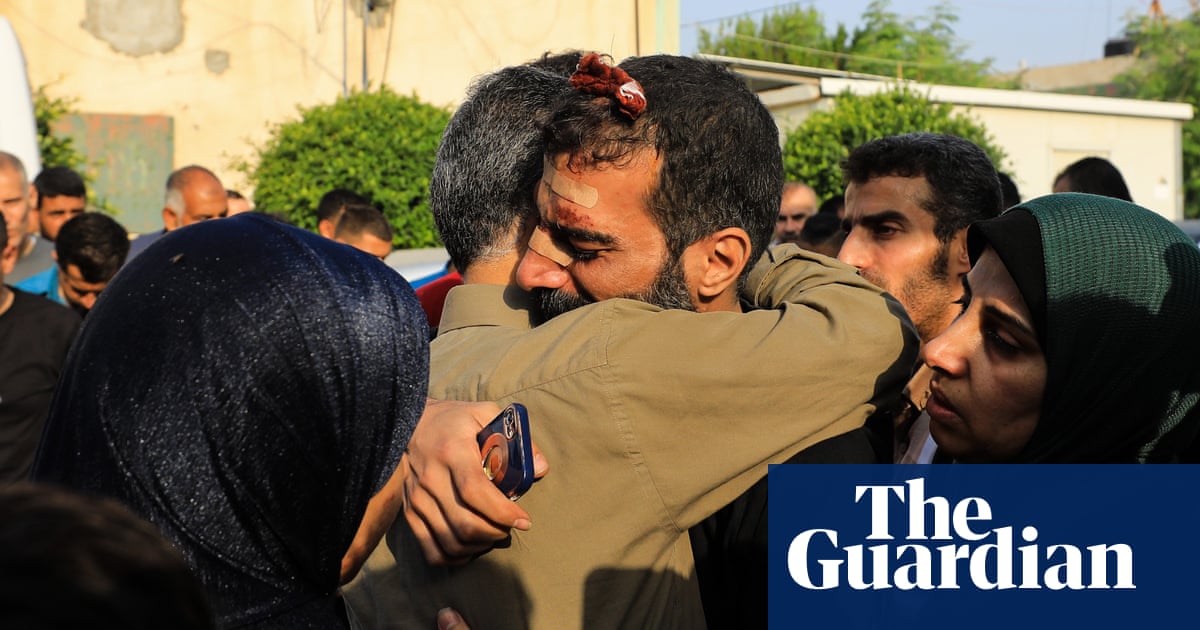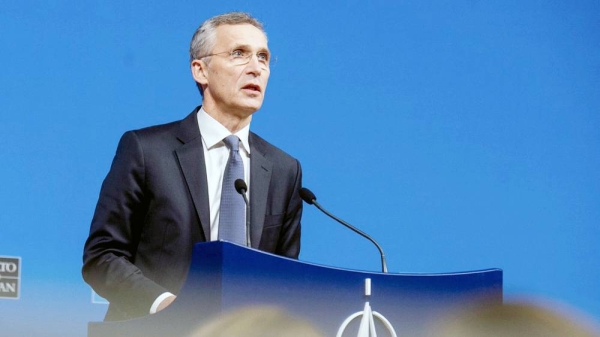
The common perception of events in the eastern Mediterranean is of fault lines between two camps, formed as a result of pre-emptive Turkish insistence on its rights to recently discovered and vast undersea energy resources. However, developments in these troubled waters are not so simplistic or one-dimensional.
Tensions are indeed high, buoyed by a ceaseless flow of rhetoric and brazen naval maneuvering from the Aegean Sea to Cyprus. If some analyses are to be believed, the six-way standoff — Athens urged on by Paris alongside Cairo supported by Abu Dhabi, against Ankara allied with Doha and Tripoli — is inching closer to a dreaded head-scratcher of a hot war.
But the reality on the ground speaks more of the unlikelihood of such a scenario in favor of a drawn out yet peaceful series of talks — first to deescalate, then to map the way forward. Brinkmanship aside, there is no upside to any country if the eastern Mediterranean becomes another venue for open geopolitical conflict.
The arguments for such an assertion are simple, but — strangely — not often discussed.
Before recent escalations, most of the nations in the region had close ties even while competing for influence and economic superiority. Turkey and Egypt are no strangers to conflicting views or competing objectives, being populous nations with large militaries and significant interests in dominating eastern Mediterranean affairs. It is unsurprising, therefore, to see Cairo in the driver"s seat, forming what appears to be an anti-Turkey coalition in the Eastern Mediterranean Gas Forum (EGMF) sponsored by one of Ankara’s bitterest Middle East rivals, the UAE. Yet Egypt continues to share intelligence with Ankara.
Additionally, even if Cairo persists in deepening ties with the UAE, and loathes Turkish ambitions and maneuvering in Libya as well as off its coast, Egypt has refrained from signing a full maritime deal with Greece. Such a commitment would jeopardize future possibilities of a deal with Turkey — despite the obvious convergence of interests between Cairo and Athens with regard to eastern Mediterranean undersea resources. On the other hand, Turkey has recently increased imports of Egyptian gas, making it the foremost trade partner on the African continent with more than $5 billion in bilateral trade. It is unlikely that either country would want to undo such ties, especially when factoring in Egyptian plans to sign a maritime delimitation agreement with Turkey at one point.
Greek and Turkish tensions are not new but US retrenchment from the region robbed the two countries of a capable arbiter, leaving a vacuum that all but ensured occasional sparks will turn into dangerous conflagrations.
Hafed Al-Ghwell
Even among Gulf states, the eastern Mediterranean is not a simple issue of “us vs. them,” but a complex, interlinked affair, with little room for muscle-flexing and brinkmanship. Instead, what is needed is the ability to exploit mutual interests, undistracted by rhetoric and divisive posturing, to build on existing ties. Consider, for instance, that the UAE’s DP World operates ports in Turkey and Cyprus, one of the focal points of escalation in this increasingly volatile region. Differing ideologies and geopolitical designs for the Middle East have widened rifts between Abu Dhabi and Ankara despite the almost billion-dollar trade surplus between the two countries, favoring the UAE.
On the other hand, Turkish ally Qatar was not only the first Gulf state to open an embassy in Cyprus, Greece’s eastern Mediterranean partner, but owns 40 percent of Cyprus’s Block 10 natural gas field — the third largest natural gas discovery, which turned Cyprus into a major energy player. In addition, as much as 30 percent of the investments in Egypt’s refinery sector are Qatari-funded. These are just a few of the ties between the parties, which make talk of imminent war alarmist.
Diplomacy and dialogue are still very much in play and countries appear primed for such an eventuality. After all, both Greece and Turkey have said dialogue, not war, is their objective. Existing ties and cautious planning by countries on both sides of eastern Mediterranean tensions should therefore be low-hanging fruit for EU foreign policy in serious need of a boost.
Greek and Turkish tensions are not new but US retrenchment from the region robbed the two countries of a capable arbiter, leaving a vacuum that all but ensured occasional sparks will turn into dangerous conflagrations. The involvement of an EU member and the eastern Mediterranean’s proximity to Europe require Brussels to find its feet and fill in where Washington has vacated. However, the whiff of division and failure to establish consensus within the union will doom any efforts by the remaining pillars of the bloc — Germany, France and Italy — to find a sustainable, permanent solution agreeable to Greece, Cyprus and Turkey.
Currently, an anti-Turkey coalition of France, Cyprus and Greece has elected for a combative, reactionary stance, aiming for targeted sanctions against Turkey for deploying research vessels in Greek and Cypriot waters, in violation of their sovereignty. Turkey’s maneuvering in the region has not won Ankara any points among Europeans, making it difficult for Turkish calls for direct dialogue to cut through the thickening fog.
Worryingly, French anti-Turkey rhetoric is making it challenging for the EU to coalesce behind a unified stance beyond immigration concerns, which require a conciliatory posture with Ankara. The French have since militarized the standoff and raised the stakes in what would have been an achievable settlement.
President Macron’s endgame appears to be more focused on securing UAE cooperation to protect its interests in Africa. After all, eastern Mediterranean gas or the now delayed pipeline are not strategic infrastructure necessities for French energy security. In contrast, Italy and Germany have elected for neutrality and maintaining diplomatic channels to both camps; the former for the sake of its energy needs, and the latter more concerned about immigration as well as keeping the peace in an EU neighborhood.
Unfortunately, the EU’s approach is still crippled by its failure to acknowledge the eastern Mediterranean conflict as an extension of a much wider Middle East geopolitical rivalry. While the core issues are the maximalist narratives, maritime boundaries, sovereignty and yet to be adjudicated interpretations of international maritime law, it does not end there. It is not to say the conflict cannot be resolved, only that a narrow focus on the core issues would be inadequate, and the sooner the EU acknowledges that, the likelier it is to find a permanent solution while the weapons are still kept at bay.
Hafed Al-Ghwell is a non-resident senior fellow with the Foreign Policy Institute at the John Hopkins University School of Advanced International Studies. He is also senior adviser at the international economic consultancy Maxwell Stamp and at the geopolitical risk advisory firm Oxford Analytica, a member of the Strategic Advisory Solutions International Group in Washington DC and a former adviser to the board of the World Bank Group. Twitter: @HafedAlGhwell
Disclaimer: Views expressed by writers in this section are their own and do not necessarily reflect Arab News" point-of-view












